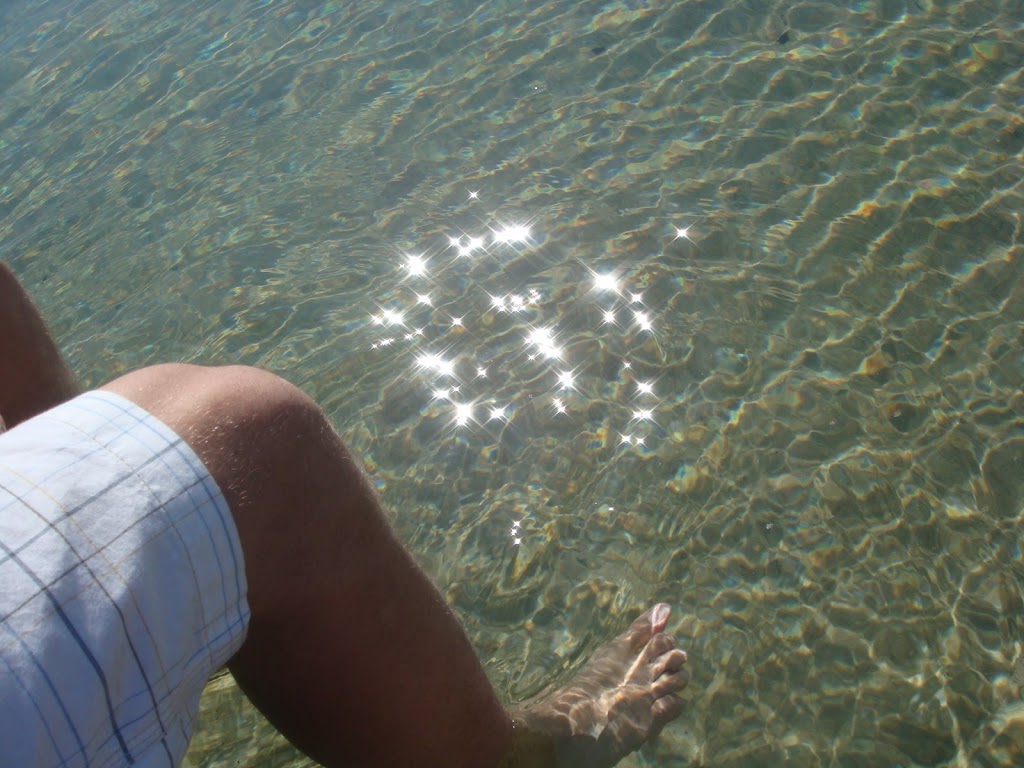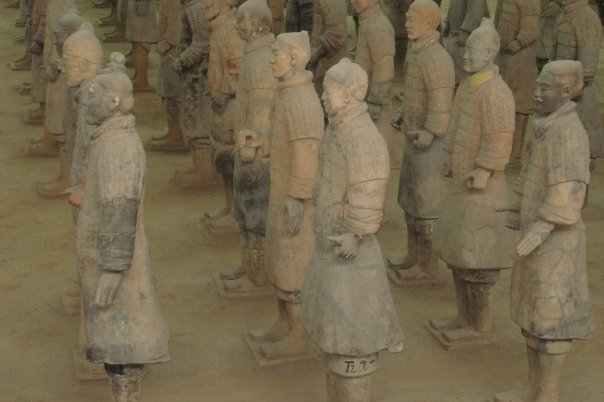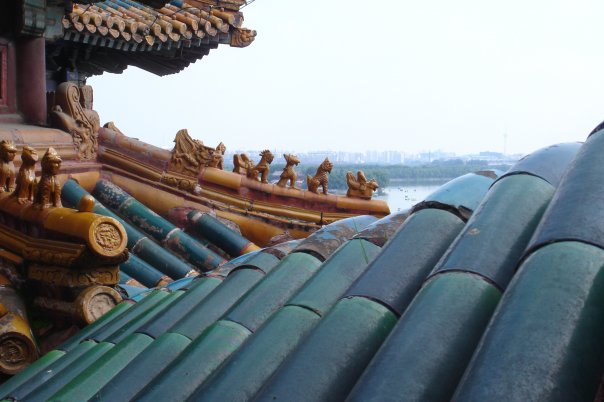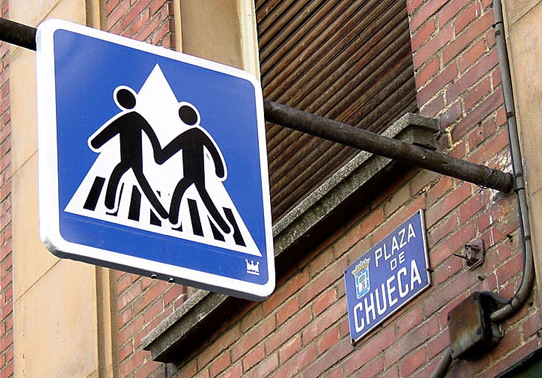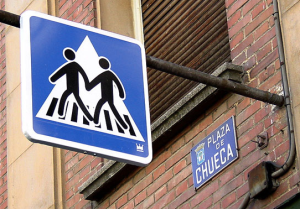Feed the artists
Other ideas from the article:
- License kids to drink before they turn 21, provided they have gone through a course in alcohol awareness: ‘Clearly, state laws mandating a minimum drinking age of 21 haven’t eliminated drinking by young adults – they’ve simply driven it underground, where life and health are at greater risk.’
- Amp up federal arts funding: ‘For every $30,000 or so spent on the arts, one more person gets a job, compared with about $1 million if you’re building a road or a hospital.’ This clearly isn’t sustainable in the extreme, but maybe there’s a happy medium?
It ain’t easy being Steven Chu
A very prominent Chinese scientist graduated with a PhD from UCBerkeley and his two younger siblings graduated with PhDs from Harvard. The Berkeley grad went on to win a Nobel Prize. He called his mom to tell her the good news and she said ‘So? You still didn’t graduate from Harvard.’ He went on to be named Secretary of Energy by President Obama. The mother: ‘So? You still didn’t graduate from Harvard.’ He was then invited to speak at the 2009 Harvard commencement, which means he was granted an honorary degree, and finally his mother was proud of him.
The Detroit-Kabul connection
Like any delusional idealist who studied post-conflict development in college, I’ve thought it might be interesting to look for work in Afghanistan. I heartily agree with the new philosophy governing (at least in theory) the latest troop surge. The language (Dari, a dialect of Farsi) is nowhere near as intimidating as Arabic. Three other friends who have worked there as civilians rave about the beauty and dynamism of the country. And, cheesy as it seems, I like to think that I could help build things there, and that I could put my education to good use.
I pestered Jon with questions for most of the four hour drive to Detroit. The news isn’t good.
I guess the news isn’t good in Detroit either.
Gillian in China, the second time
Poetry of San Francisco
Graffiti on the front steps of a townhouse on Haight St: ‘Pig tested, Big Brother approved.’
Man to woman on street: ‘Do you have 25 cents? No? Thanks anyway diablo motherf***ing satanic fingernail-ripping b****.’
Original composition, inspired by my friend Sarah’s predilection for haikus (for example, see June 26 post in Euroclass09):
San Francisco sucks
Everyone is so happy
They hog good karma
Man at bus stop: ‘Are you homeless?’
Me: ‘No, but thanks for asking.’
I really should buy some new clothes. Fortunately, thrifty chic is the norm in China. I take off in a few hours.
Share this:3, 2, 1…
 Truly, northern Michigan in summer is one of the most beautiful places in the world (not my leg).
Truly, northern Michigan in summer is one of the most beautiful places in the world (not my leg).
The crystal-clear lakes bring to mind a less pleasant beach experience I had last summer, which I described the last time I updated this blog:
‘Qingdao is an old German colony with one of the most unappealing beaches I have ever seen: brown, rocky and weed-strewn, tidepools that smell more like cesspools, and a horizon dominated by ill-conceived modern architecture. After two days, I headed back to Beijing. On my way out of the city, I marveled at its size: it seems like there are enough skyscrapers to house all the jobs in the world. And yet there are cranes everywhere – dormant while the city struts its stuff for the Olympics, but ready to roar back into action. Celtic tigers and lions notwithstanding, it is hard to imagine a future not dominated by the Chinese dragon.’ (23 Aug. 2008)
I’ll be back in China next Friday. Can’t wait to see how things have changed.
The future, Part I
Because we have dreamed too little,
When we arrived safely
Because we sailed too close to the shore.
Disturb us, Lord, when
With the abundance of things we possess
We have lost our thirst
For the waters of life;
Having fallen in love with life,
We have ceased to dream of eternity
And in our efforts to build a new earth,
We have allowed our vision
Of the new Heaven to dim.
Disturb us, Lord, to dare more boldly,
To venture on wider seas
Where storms will show your mastery;
Where losing sight of land,
We shall find the stars.
We ask You to push back
The horizons of our hopes;
And to push into the future
In strength, courage, hope, and love.
I climbed the Stairway to Heaven
 |
| The view from most of the way up the Stairway to Heaven |
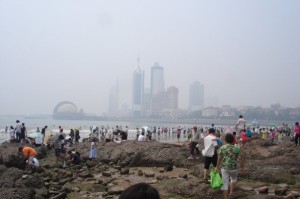 |
| The beach at Qingdao |
Over the Hills and Far Away
 |
| From the forbidden city |
exceptions, most Chinese people feel that they have won the lottery
when they are informed that the government (or some business) wants to
take over their property. The reason is that they are often
compensated to ridiculous excess. For all of the Chinese government’s
problems (and we are all aware that there are many), it does refuse to
force the people from their land. Business people are often upset
because the Chinese citizens usually don’t actually have formal rights
to the properties (though many of them built their own houses and have
families who have lived in the same place for generations- it brings
up good questions about ownership). There have been many cases of
Chinese citizens refusing to sell their properties to the government
until they are offered an amount that is satisfactory to them. That
amount is generally unreasonably high. If the people who gave up
their properties in Beijing for the construction of the Olympic venues
were able to get good compensation, then it is definitely possible
that they weren’t terribly upset to move. And the fact that they can
tell their friends that the Cube and the Bird’s Nest was built on
their land will probably give them immense pride- an extra benefit.’
Operacion Triunfo Americana


Yo no soy racista, pero…
Why not?
I gave her the money for the deposit – the place was forty euros a month more than the one I’d seen in Chueca – and left a guidebook on my new nightstand to hold my place.
Merry and Gay
Sex, Politics, and Football
She and another friend, Caroline, had just seen ‘Definitely, Maybe’, a ‘chic-flic’, to console Caroline, who has just broken up with her boyfriend of two years. After briefly discussing our personal lives, Caroline turned to me and asked ‘Alors, tu adores George Bush?’ She went on to explain that she fancied herself the only libertarian in France and that, while she disapproved of Bush’s spending habits, foreign policy, actually his entire administration in general, she saw a lot to like in the American Republican party.
Spain beat Russia in the semi-final for the quadrennial European Cup and will be playing Germany tomorrow evening. I mentioned how frustrated I was with myself for having bought a ticket for the overnight train from Paris to Madrid for Sunday evening and therefore unwittingly ruining my chances to see this potentially historic event with the Madrilenos. Two years ago, I was chaperoning a tour in Italy and we found ourselves in Rome the night Italy won the world cup. After putting my charges to bed with dire warnings about how dangerous the streets would be – full of drunk soccer hooligans! – a fellow chaperone and I put on as much azure (the color of the Italian jersey) as we could find and hit the streets.
